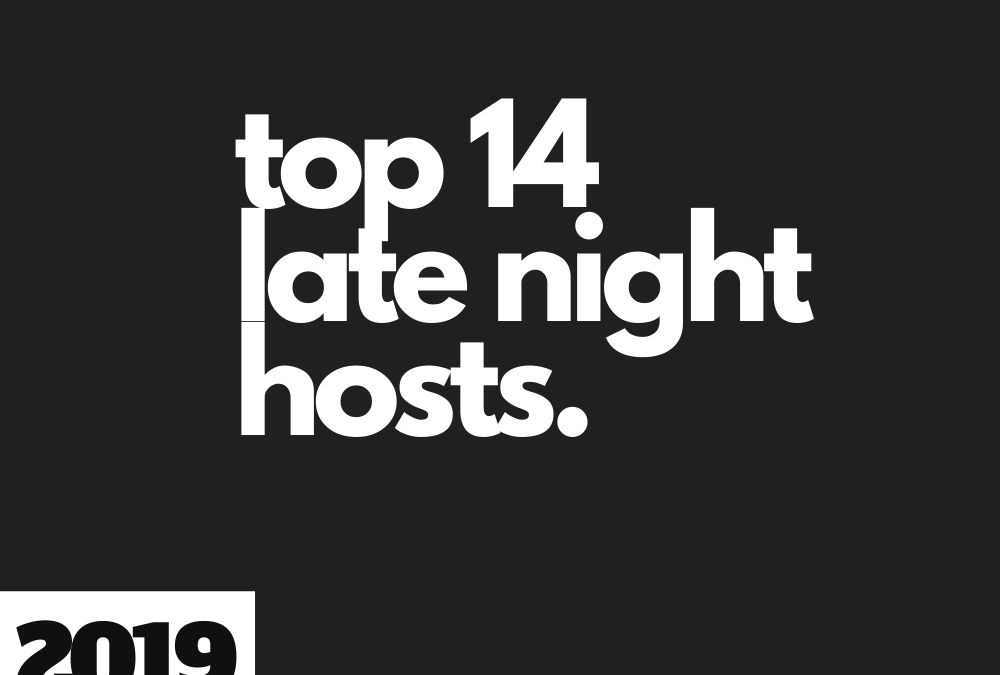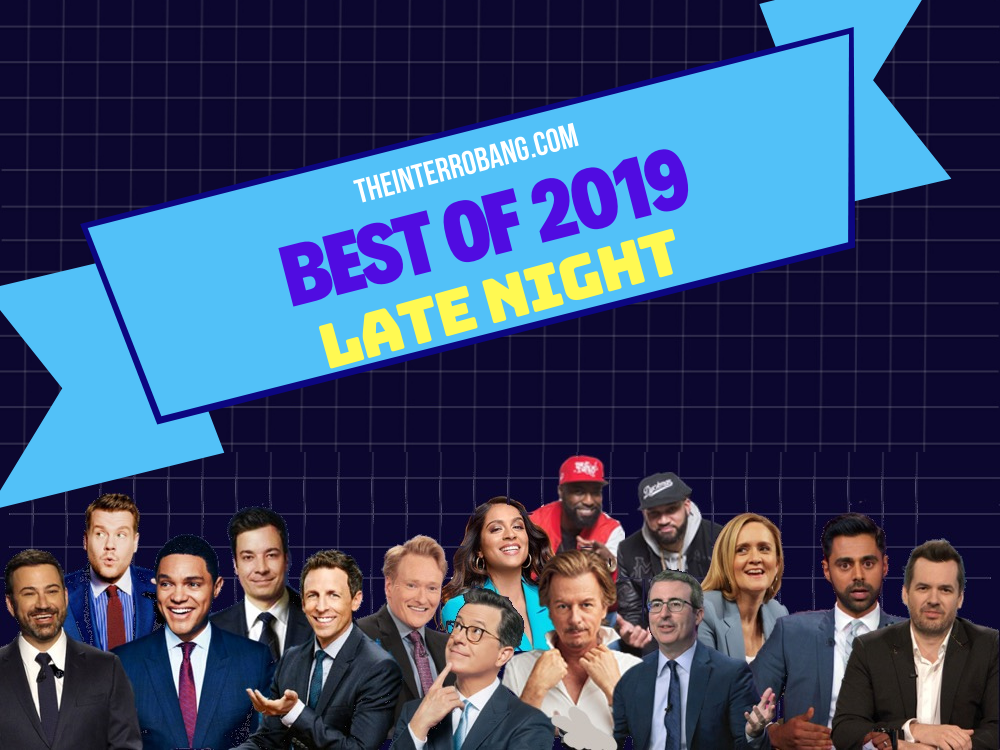Who is 2019’s King of Late Night Television


Who is dominating Late Night in 2019? Is it Network TV? A nightly show? Something weekly? Does late night even matter in comedy anymore? And how do you measure any of this? Do you look at ratings? YouTube clip hits? Advertiser dollars? Press attention? Best guests? Nobody knows, and that’s why the late night game continues to be a confusing mess.
Where will late night go next?
Our end of year awards have all focused on the best of everything in comedy, extolling the positives and reasons for our choices. Quite frankly, we’re lost in late night television, and late night television is lost on us. Last year we made the sad case for why everything in late night is bringing us down, and this year not much has changed about that. But its impossible to separate late night from conversations about comedy; every show is hosted by a comedian, even though being a comedian may no longer be a requirement of helming a late night show.
We’ve lost Michelle Wolf’s voice on Netflix, and we’ve added David Spade on Comedy Central. Desus and Mero are new on Showtime doing an extension of their popular podcast, and Lilly Singh may not be the first queer woman of color to come to late night, but she’s certainly the only one there now and she’s brought a new energy to the conversation.
And make sure you click here to vote for COMEDIAN OF THE YEAR, SPECIAL OF THE YEAR, ALBUM OF THE YEAR as well as BEST COMEDY MOVIE, BEST COMEDY TV SERIES, KING OF LATE NIGHT and BEST BOOK WRITTEN BY A COMEDIAN too.
In 2019, nothing has changed for Seth Meyers. He is still holding ground as the school professor of late night on Late Night With Seth Meyers. He still wants to be smarter than everyone else, and more professional and he’s succeeding on both grounds. But his show is just not generating excitement and he’s officially killed the idea of late night as a spot to be experimental. This might not be entirely his fault because now you can piss off the viewing public even if you don’t come on television till after they are asleep, thanks to clip culture, cancel culture and time shifted viewing. Across the aisle in late night, James Corden scores occasional points with viral segments, but feels largely forgotten. The happy go lucky guy who took the gig has become the guy who doesn’t make waves while waiting for the next gig to present itself. Late Late night it seems is no longer a place to develop your voice, but a place to show that you can be a good boy until someone comes up with a better gig for you. Newcomer Lilly Singh brings the YouTube generation and audience, which is way out of our area of expertise and interest, but watch out for the young bright super woke audience because you can be out with them in a heartbeat. The stairway to woke always has another landing up ahead, and Singh is already finding that out from pockets of young idealists who always want to be better. She has her work cut out for her.
In primetime on the Networks, Jimmy Kimmel is probably the most watchable of the late night shows, but the branding elements of his show are too visible to make it consistently watchable. But that’s okay, he appeals to parents who want to prank their kids. He’s basically the Ellen of Late Night television, and that’s not so bad. It’s just not interesting to us. Over at The Tonight Show, Jimmy Fallon keeps the party going, and that is enough to keep a broad audience tuned in. And he’s still giving respect to comedians, and helping them have successful appearances on the show, which is more than most of the late night hosts. Stephen Colbert has maintained his status quo this year– immersed in politics and quite pleased with himself. We said this last year and it continues to sum up Late Night: “It’s difficult to say anything about Colbert that he hasn’t said about himself, particularly if it’s a compliment.”
On cable platforms, Trevor Noah is showing real growth for The Daily Show with younger audiences and he’s cultivating an impressive roster of correspondents. Nobody really understands what Conan is up to. Less can be more, but this much less is never more. Is he being lazy or has he just given up? And newcomer Lights Out With David Spade isn’t making any waves or headlines, but that wasn’t his plan anyway. It’s a good show. Good conversations. Is it “important”? No, but who says late night needs to be?
In the weekly cable TV shows, John Oliver’s Last Week Tonight continues to have a solid reputation, but he may be running out of causes and topics. Samantha Bee seemed more muted last year, and this year pretty much confirms it. That battle with the gen pub really took the fight out of her, and without that righteous indignation she has a difficult time standing out. The Jim Jefferies Show probably the freshest voice in the genre, but does it matter? The Jim Jefferies Show‘s has called it a day. Jim’s moving on to newer projects, but it was fun while it lasted. The new kid on the block, David Spade, is surprisingly the most fun to watch, and he brings in the kind of guests we actually enjoy watching. Desus and Mero bring the podcast vibe to late night, in theory delivering a younger hipper alternative to the old talk format. It’s not a game changing show, but its fun and fresh or at least fun-ner and fresh-er than most of Late Night. But its not the show that’s going to change everything and usher in a new era of late night.
And finally, on Netflix, Michelle Wolf is gone, but she’s been replaced with a structurally similar show: Patriot Act With Hasan Minhaj. Minhaj came on the scene with the energy Samantha Bee once had, and like Trevor Noah’s Daily Show, Minhaj has found his audience among a younger demographic. He’s young and smart and eager, and funny, and seems to be a good fit.
Let us know with your vote!
Vote for your favorite host.
